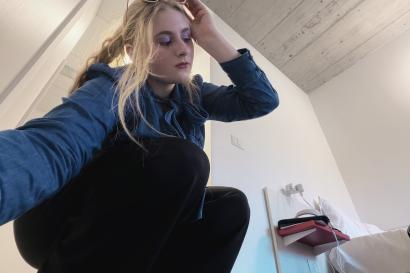Milan offers marvelous opportunities for students of business or global affairs; since Milan is one of Europe’s largest cosmopolitan hubs, it is a prime location for these disciplines. But living in Milan as a musician has felt almost otherworldly. As a student of classical music, I have been given opportunities to hone my art here in Milan that I could only dream of receiving in other places.
Milan boasts a rich history of classical music and is one of the best places in the world for young musicians to live, study, and work. Pursuing a career in music is hard. Choosing music means choosing a future that has the potential to be consistently inconsistent. Choosing music means constantly doubting yourself, no matter how much belief you may have in yourself. Choosing music means sacrificing a steady paycheck and steady hours, instead opting for uncertain bookings and rehearsals that last through the night and into the next morning. Choosing music means putting the truest and most raw version of yourself into the public’s eye and receiving criticism after criticism, often harkening upon your greatest insecurities and fears, because who can truly understand being a musician if they themselves are not one? And how can they be faulted for that?
I do not say this to complain. I say this as a student who has understood this and makes this choice anyway. Because choosing music also means cultivating a passion that touches other individuals in indescribable ways. It means being able to heal and be healed through melody, rhythm, and harmony. It means loving deeply what you do, despite its hardships. It means bringing light to some of the world’s darkest moments in ways only music can. It is a marvelous, and terrifying, responsibility.
As a student of music, it can be exceedingly difficult at times to remain committed to this path. Life in conservatory is demanding and challenging and often times pushes you past your breaking points. At home, I am enrolled in both a conservatory and a university; the pressure I feel as a conservatory student is integrally different from that I feel as a non-conservatory student (and neither one is more or less challenging or legitimate than the other) because the study of music comes with completely different obstacles and rewards.
But in Milan this past semester, my experience as a music student was different. Living in a city that bore witness to the birth and continuing life of opera creates a tangibly different atmosphere. Being a musician in Milan was neither more challenging or less challenging than being a musician in Baltimore; it was simply different.
In Milan, as in Italy as a whole I imagine, classical music is much more common than I have experienced at home, in large part because of the musical traditions of the city and country. This common experience doesn’t create anything palpable; rather, it creates a sentiment. This sentiment that lives in the residents of the city leads to opportunities for musicians that are unlike opportunities available elsewhere.
To begin with, much of opera is in Italian and written by Italian composers. It is more easily accessible for Italians linguistically and culturally. Being able to study this repertoire under Italians gave me a new understanding of pieces that I have known for years. Furthermore, I and my fellow IES Abroad students were given a few niche performance experiences that not only introduced me to a new operatic genre but also showcased the direct impact of music on the lives of others. For example, the students of Silva Constanza’s music performance workshop gave a concert to the prisoners at the local San Vittore jail in Milan to the prisoners there. Afterwards, the Italian Department of Justice recognized the concert with commendation for the profound impact it had on the audience. Additionally, my musical education was supplemented by tickets provided to us by IES Abroad to performances at La Scala, one of the most important, historical, and successful opera houses in the world. Chances to see performances at a theatre like La Scala reinvigorate us young musicians, providing us with inspiration and goals to strive for.
Opera is sometimes described as a dying art form, but I beg to differ. Opera is very much alive, now as much as if not more than ever. The very nature of the art is one of growth, of continuity, of change, and of the people. This is the sentiment of music that I felt in Milan, which I have internalized and will work to bring back with me to Baltimore. This is what sets my semester abroad apart.

Claire Iverson
I am in love with many different things: with music, with languages, with literature, with cuisine, with other cultures. I study opera and international studies at two leading institutions, and am constantly trying to find the best balance between these two fields, incorporating socializing and personal time. In my spare time I love to read. I believe very passionately that connecting with other people and cultures through commonalities like food and music makes me a more developed individual, and that I am a better person because of opportunities in which this can manifest -- like studying abroad!









